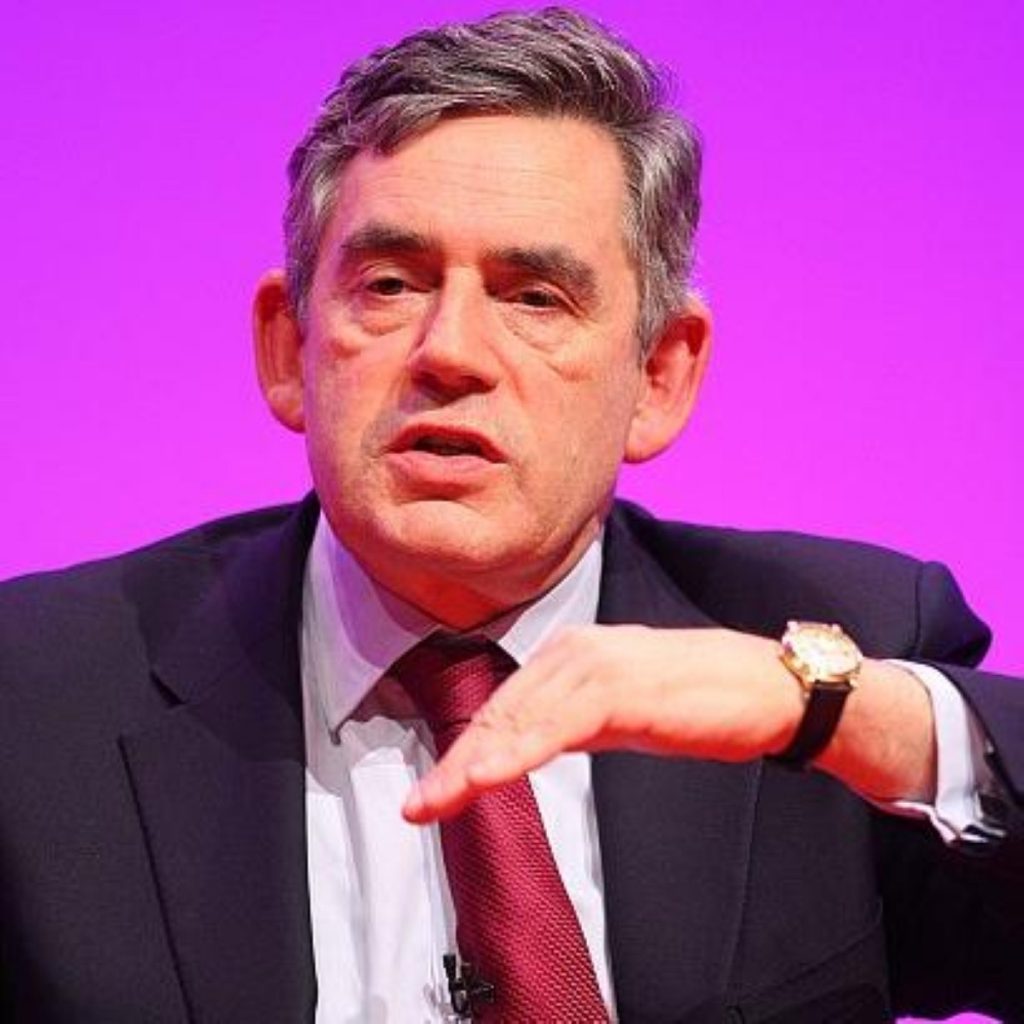Brown defends borrowing
Gordon Brown has addressed a meeting of small businesses as world markets continue to tumble.
The prime minister was forced to defend his policy of aleviating the economic downturn through increased borrowing.
“The investment that is necessary for the future will continue,” he said.
“That is the only way we can benefit from the new global age.


“The response of government is to invest to speed up economic acitivty. The responsible course at the moment is to use the investments that are necesasary,” he continued.
But the Tories hit back at Mr Brown’s statements, saying he was forced into borrowing because of the poor state of the national finances.
“Gordon Brown is a man with an overdraft, not a man with a plan,” said shadow chancellor George Osborne.
“He is being forced into borrowing out of necessity, not out of virtue.”
The meeting comes as international efforts to stabilise the global economy were thwarted once again.
In London the FTSE 100 leading share index opened down almost five per cent as Gordon Brown prepared to defend his policy of increased borrowing and spending until the economy recovers.
Japan’s Nikkei led the falls in Asia as it slumped 6.36 per cent to its lowest level for more than 25 years.
The falls prompted the country’s central bank to cut interest rates, a move mirrored in South Korea, as markets in Hong Kong, China and Singapore all fell.
The US Federal Reserve is also coming under pressure to cut interest rates further to complement commitments from the G7 and International Monetary Fund (IMF) to stabilise markets.
The IMF followed up a $2.1 billion loan to Iceland by pledging a $16.5 billion loan to Ukraine and a “substantial package” for Hungary, with Belarus and Pakistan next in line.
The prime minister said at the weekend that inflation was likely to fall in the coming months as oil prices subsided.
“Now inflation is actually coming down over the next few months and that will mean that it gives scope to all the monetary authorities, including the Bank of England, round the world to make a decision about interest rates,” he said.
The G7 – Britain, Canada, France, Germany, Italy, Japan and the US – released a statement via the Japanese foreign ministry reaffirming a “shared interest in a strong and stable international financial system”.
“We are concerned about the recent excessive volatility in the exchange rate of the yen and its possible adverse implications for economic and financial stability,” the message said.
“We continue to monitor markets closely, and cooperate as appropriate.”

